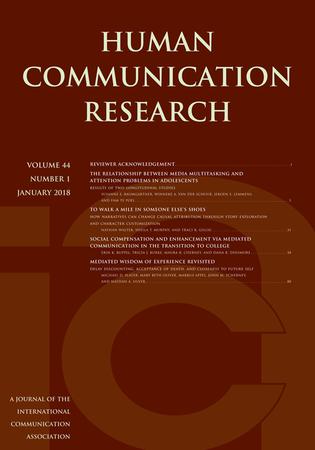利用飞地小组讨论工作场所文化多样性和社区包容性
IF 4.4
1区 文学
Q1 COMMUNICATION
引用次数: 1
摘要
工作场所文化多样性和社区包容性是一个复杂的公共问题的两个方面,需要以社区为基础的审慎解决问题的方法。本文报告了对在中西部农村社区举行的14个焦点小组(N = 83参与者)进行定性分析的结果,该小组以社区成员对工作场所文化多样性和社区包容的经验为中心。出现了三个主题:(a)种族主义和微观侵略;(b)在谈论和跨越文化差异时感到不适;(c)缺乏归属感。在14个焦点小组中,有5个代表了拥有多元文化员工的飞地群体。通过与历史上被排斥的群体接触,研究人员在制定公共问题和召集公众会议讨论该问题时,与受影响的利益相关者进行了沟通。利用飞地群体使审议周期的初始阶段更具包容性,这对公共审议的实践者、人类交流的学者、公民及其社区都有影响。本文章由计算机程序翻译,如有差异,请以英文原文为准。
Using enclave groups to discuss workplace cultural diversity and community inclusion
Workplace cultural diversity and community inclusion are two facets of a complex public issue that require a deliberative community-based problem-solving approach. This article reports findings from a qualitative analysis of fourteen focus groups (N = 83 participants) held in a rural Midwestern community that centered on community members’ experiences with workplace cultural diversity and community inclusion. Three themes emerged: (a) racism and micro-aggressions; (b) discomfort talking about and across cultural differences; and (c) lack of belonging. Of the 14 focus groups, five represented enclave groups with culturally diverse employees. By engaging with historically excluded groups, researchers communicated with affected stakeholders when framing the public issue and convening public meetings to discuss that issue. This use of enclave groups to make the initial stages of the deliberative cycle more inclusive has implications for practitioners of public deliberation, scholars of human communication, and citizens and their communities.
求助全文
通过发布文献求助,成功后即可免费获取论文全文。
去求助
来源期刊

Human Communication Research
COMMUNICATION-
CiteScore
8.20
自引率
2.00%
发文量
28
期刊介绍:
Human Communication Research is one of the official journals of the prestigious International Communication Association and concentrates on presenting the best empirical work in the area of human communication. It is a top-ranked communication studies journal and one of the top ten journals in the field of human communication. Major topic areas for the journal include language and social interaction, nonverbal communication, interpersonal communication, organizational communication and new technologies, mass communication, health communication, intercultural communication, and developmental issues in communication.
 求助内容:
求助内容: 应助结果提醒方式:
应助结果提醒方式:


